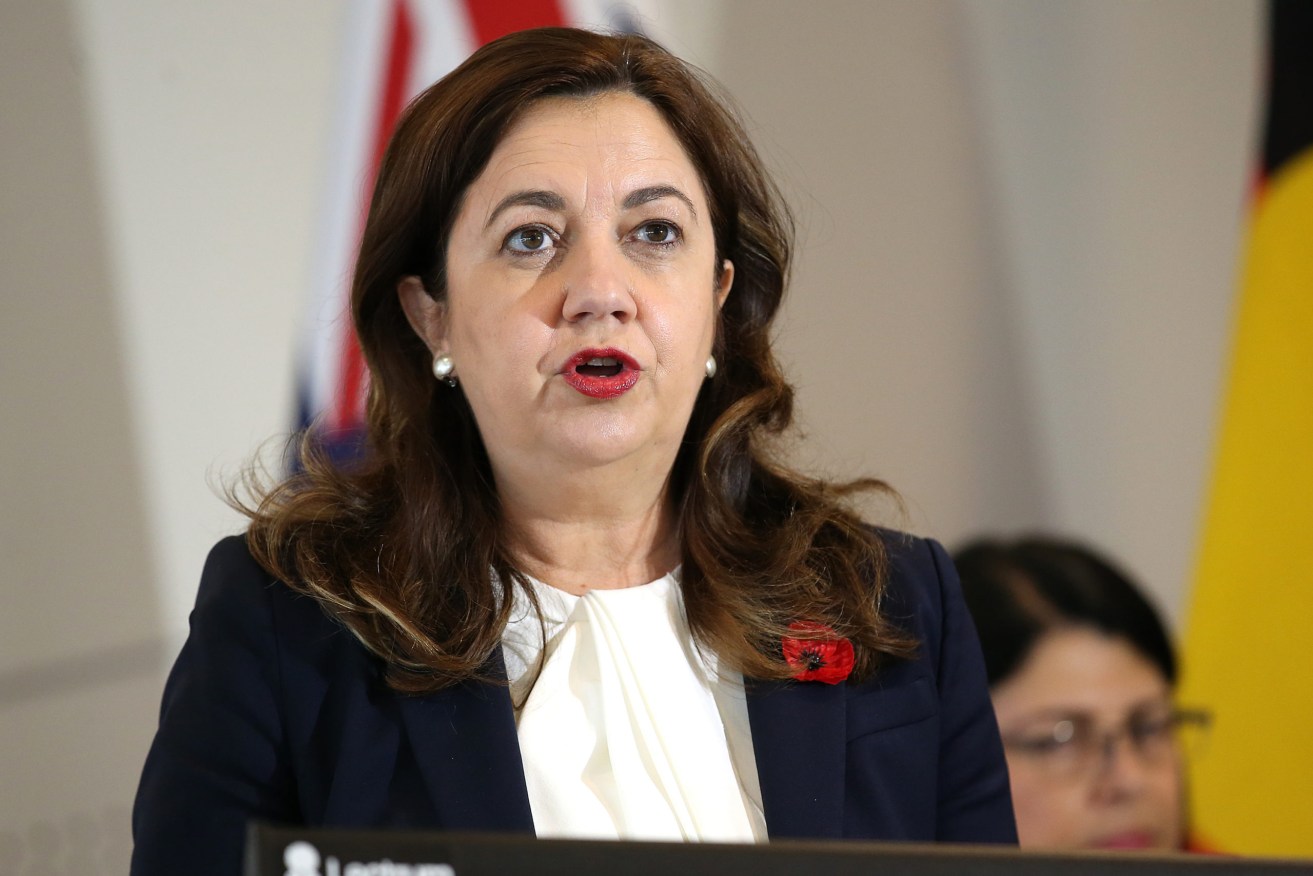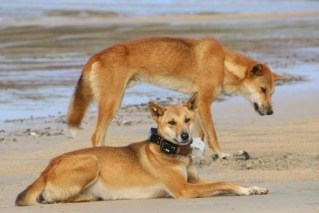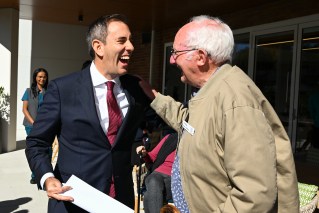This is personal: How Palaszczuk family’s Nazi escape helped land Holocaust museum
Has Premier Annastacia Palaszczuk’s personal connection to the atrocities of Nazi Germany driven her ambition to open a $7.5 million Holocaust museum in Brisbane?


Queensland Premier Annastacia Palaszczuk. (AAP Image/Jono Searle)
Major international cities such as Berlin and Washington DC have their own world-renowned memorials to the horrendous legacy of genocide at the hands of Nazi Germany.
Now Brisbane – a world away from one of history’s darkest episodes more than 80 years ago – is to have its own museum catering to education just as much as reflection.
Following up on her commitment made before the last election, Palaszczuk has committed $3.5 million of State Government funds matched by the Federal Government, and with a further $500,000 from Brisbane City Council, to establish the Queensland Holocaust Museum and Education Centre.
She said the centre would add to the other Australian Holocaust museums in Sydney, Melbourne, Perth and Adelaide, marking a “significant milestone in the state’s cultural history”.
“It will honour the legacy of those who faced awful atrocities and will also feature locally-recorded stories and will be able to reach the regions through online and mobile exhibits,” Palaszczuk said.
“It will ensure future generations do not forget.”
But reaction to the announcement has been swift and not all positive, with some questioning on social media the value of the investment and the government’s spending priorities, and the irony that Queensland is seeking to focus on genocide in Europe but not the murderous acts committed against First Nations people during Australia’s violent colonial past.
Palaszczuk has been open about the hardships her family, of Polish heritage, faced during Nazi Germany’s reign of terror across Europe in the middle of last century before immigrating to Australia and settling in Queensland after the war.
Her father Henry, a former Queensland parliamentarian and Cabinet minister in the Beattie government, told the Courier-Mail in a feature article in 2018 how his mother narrowly escaped becoming a Nazi sex slave, while his father spent five years in slave camps in Germany and Russia.
Multicultural Affairs Minister Leanne Linard said Queensland was home to many survivors and their descendants of the Holocaust.
“Across the globe, Holocaust museums and education centres play an important role in educating and reminding us of how we can individually contribute to stopping racism, hatred and genocides – and of the risk when we do not,” she said.
“The Queensland Holocaust Museum and Education Centre will help to empower individuals, particularly school students, to stand up against hatred and prejudice to prevent human rights atrocities from re-occurring.”
Chair of the Queensland Holocaust Museum and Education Centre Jason Steinberg said while the number of Holocaust survivors in Queensland was getting smaller with each passing year, the centre would aim to remember and honour those who survived, those who lost their lives and those who saved lives.
“We want to inspire and educate Queenslanders to stand up against prejudice, antisemitism, hatred and racism and to promote multiculturalism, inclusivity and harmony,” he said.
“The centre will enable us to share the stories of survival, resilience and courage using virtual content to provide an interactive and immersive experience for visitors.
“Stories from people directly affected by the Holocaust and other genocides are powerful tools to show Queenslanders the importance of standing up against racism and prejudice in all forms and to emphasise the devastating human toll wreaked by human rights abuses.”
Linard said a partnership with the Catholic Archdiocese of Brisbane would see the centre located in Brisbane’s Cathedral precinct at the Old Archives building and Penola Place in Charlotte and Edward Streets.
“Even though it will be based in Brisbane, the centre will be accessible for all Queenslanders, particularly students, and reach global audiences through innovative mobile and online exhibits,” Linard said.
“The centre has cemented national and international partnerships to receive artefacts, education and training materials, video stories and displays to share and exhibit.
“Locally recorded stories of Holocaust survivors living in Queensland will feature prominently.”
Brisbane Archbishop Mark Coleridge said it was an honour to partner with the centre.
“As a society, we need to work together towards a common goal that overcomes hatred and promotes peace. We need to build bridges, not walls,” he said.
“Inter-religious partnerships like this send a strong signal to the community that we are all sisters and brothers in a world where the other is not my enemy.”
Linard said the centre would open to the public in early 2023.
She said exhibitions, education and training resources about the Holocaust would be complemented by exhibitions focused on Australia’s First Nations people and other countries’ genocide histories.












